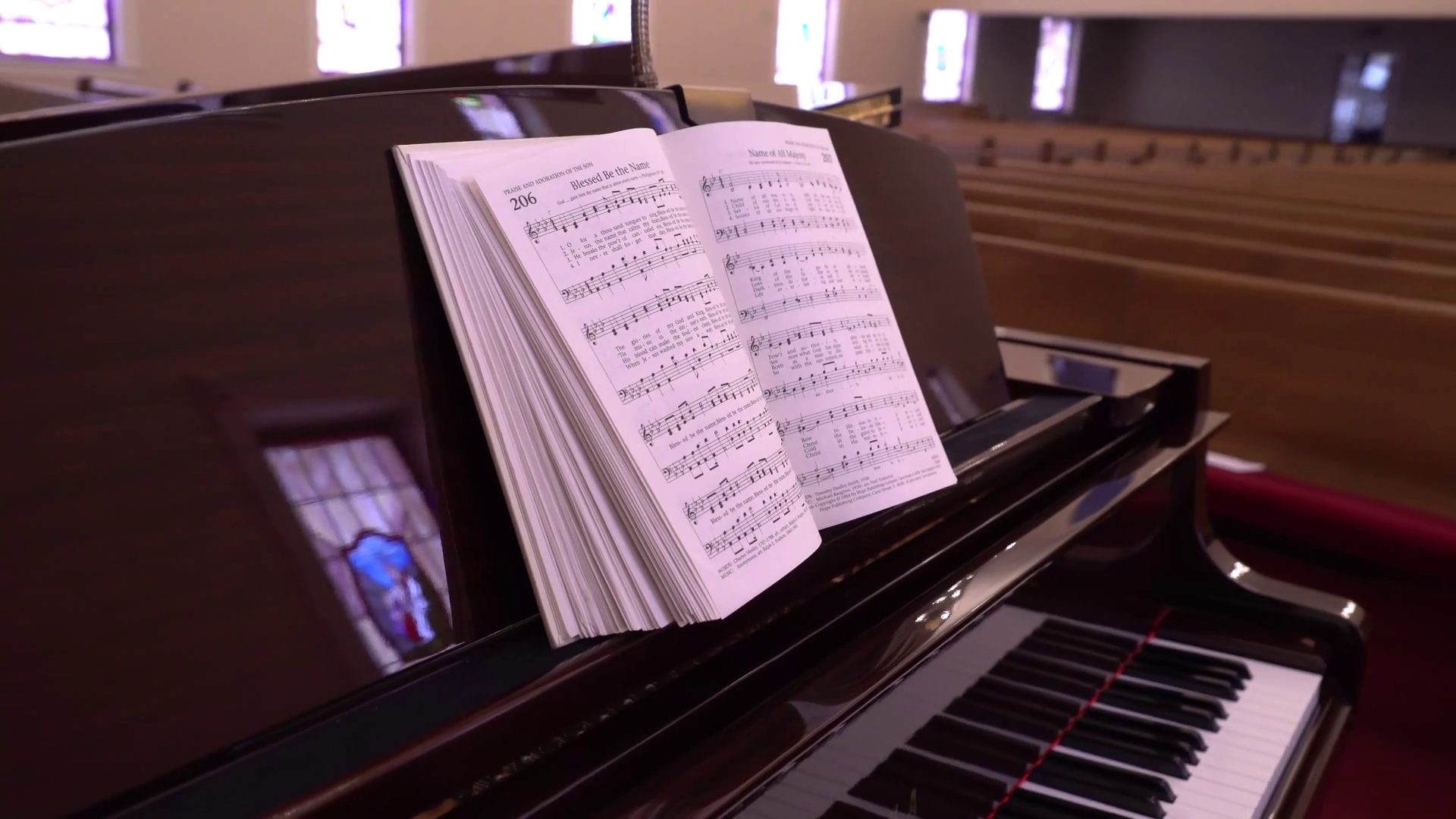Often when on my travels in Leeds and beyond, I regularly see pianos in desperate need of cleaning. Most customers never see the interior of their piano, but have to live daily with the sight of the keys and case, and when the case gradually loses its shine or the keys become yellow or grimy, the owner will be discouraged from playing as often as they should. For the piano to work at its best, it’s important that the action and the keys are cleaned to a high standard (and kept that way!). Although I primarily work as a piano tuner and technician, I offer various add-on services outside of my regular piano tuning, repair and regulation work – one of which is cleaning, for which I charge an extra £25. This is purely an optional extra which I will often recommend (politely) to clients who are looking to get their piano tuned and regulated to the highest possible standard.
In my piano tuner’s tool kit I keep some cleaning materials: a bottle of Key-Brite Key Cleaner, a 100ml bottle of high gloss piano polish, and a set of cleaner and polish cloths. These are primarily used to keep the exterior of my client’s pianos looking brand new!

For the piano’s action I target each area with a different cleaning product. If I’m contacted before the piano tuning about cleaning, I will bring my own hoover which has enough power to remove the overwhelming majority of dust out of the interior of the piano. For the soundboard, bridge, frame, pin block, hammer shanks, hammer butts, dampers, flanges and key tail, I will use both a duster and a variety of very soft cloths with different textures.
For the white piano keys I use a solution of vinegar and water or lemon oil. If your piano has ivory keys then different cleaning products will be needed. Ivory is essentially dental bone and using vinegar or lemon oil will wear it down over time. I recommend a damp cloth (dampened with water or milk) followed by a dry cloth, rubbing vertically to prevent excess dirt and debris falling down the sides of the keys.
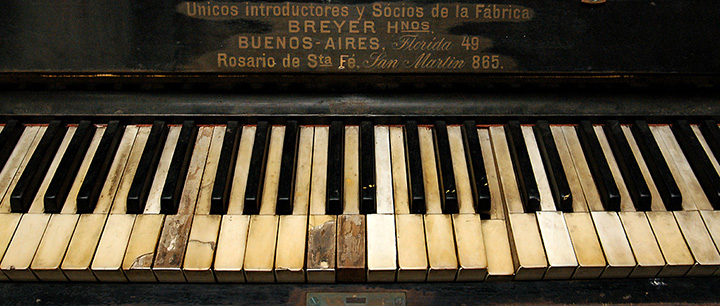
– Richard Lidster, Piano Tuner Leeds.

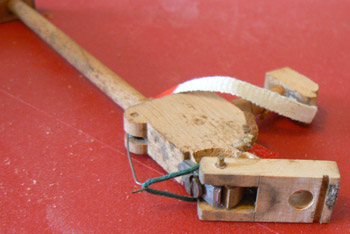
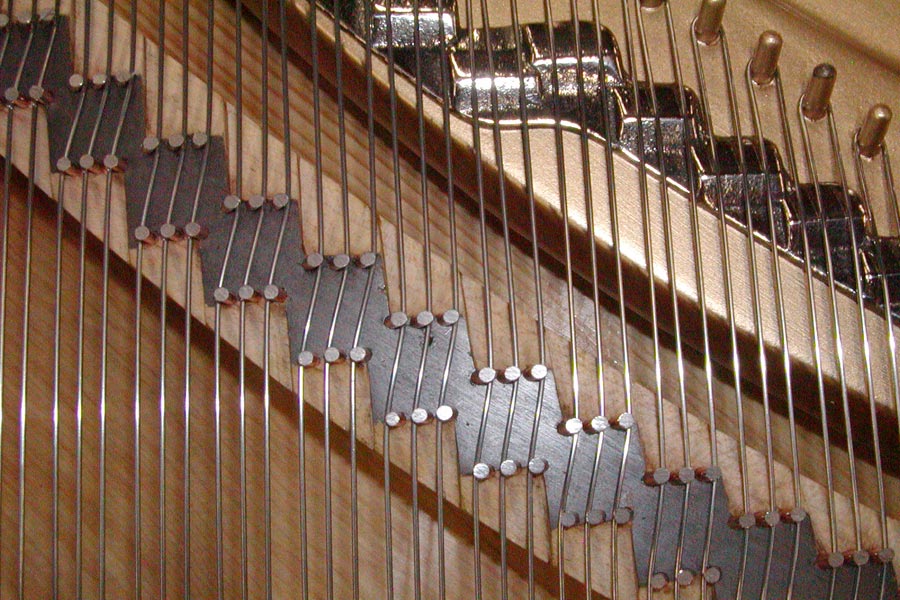
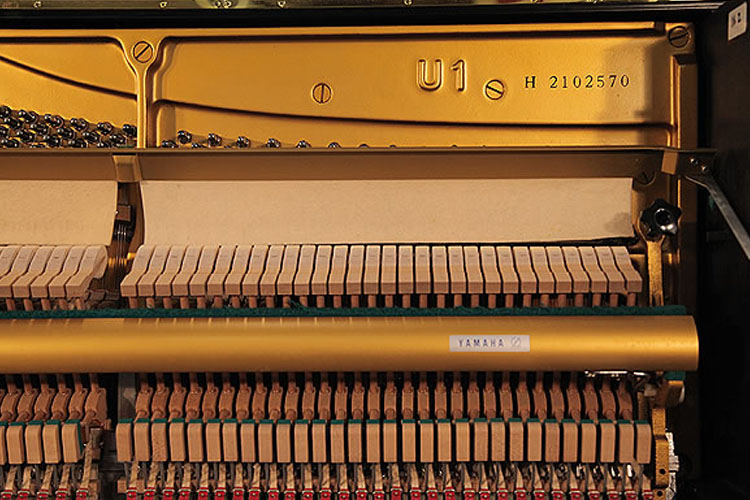
 I had two piano tuning jobs in the Leeds this morning – one in Beeston and one in Kirstall, just across from Kirkstall Abbey. Both pianos were very old, very well-loved straight-strung over-damped pianos with several on-site repair jobs needed to bring them up to standard. On the second I found lot of clicking noises which I fixed, but it reminded me of how common a problem this is in old upright pianos. Clicking sounds could have a multitude of causes, but as a piano tuner it’s my job to diagnose the problem and solve it for you after the tuning. If this is happening to your beloved piano, it could be caused by one of the following issues:
I had two piano tuning jobs in the Leeds this morning – one in Beeston and one in Kirstall, just across from Kirkstall Abbey. Both pianos were very old, very well-loved straight-strung over-damped pianos with several on-site repair jobs needed to bring them up to standard. On the second I found lot of clicking noises which I fixed, but it reminded me of how common a problem this is in old upright pianos. Clicking sounds could have a multitude of causes, but as a piano tuner it’s my job to diagnose the problem and solve it for you after the tuning. If this is happening to your beloved piano, it could be caused by one of the following issues:
